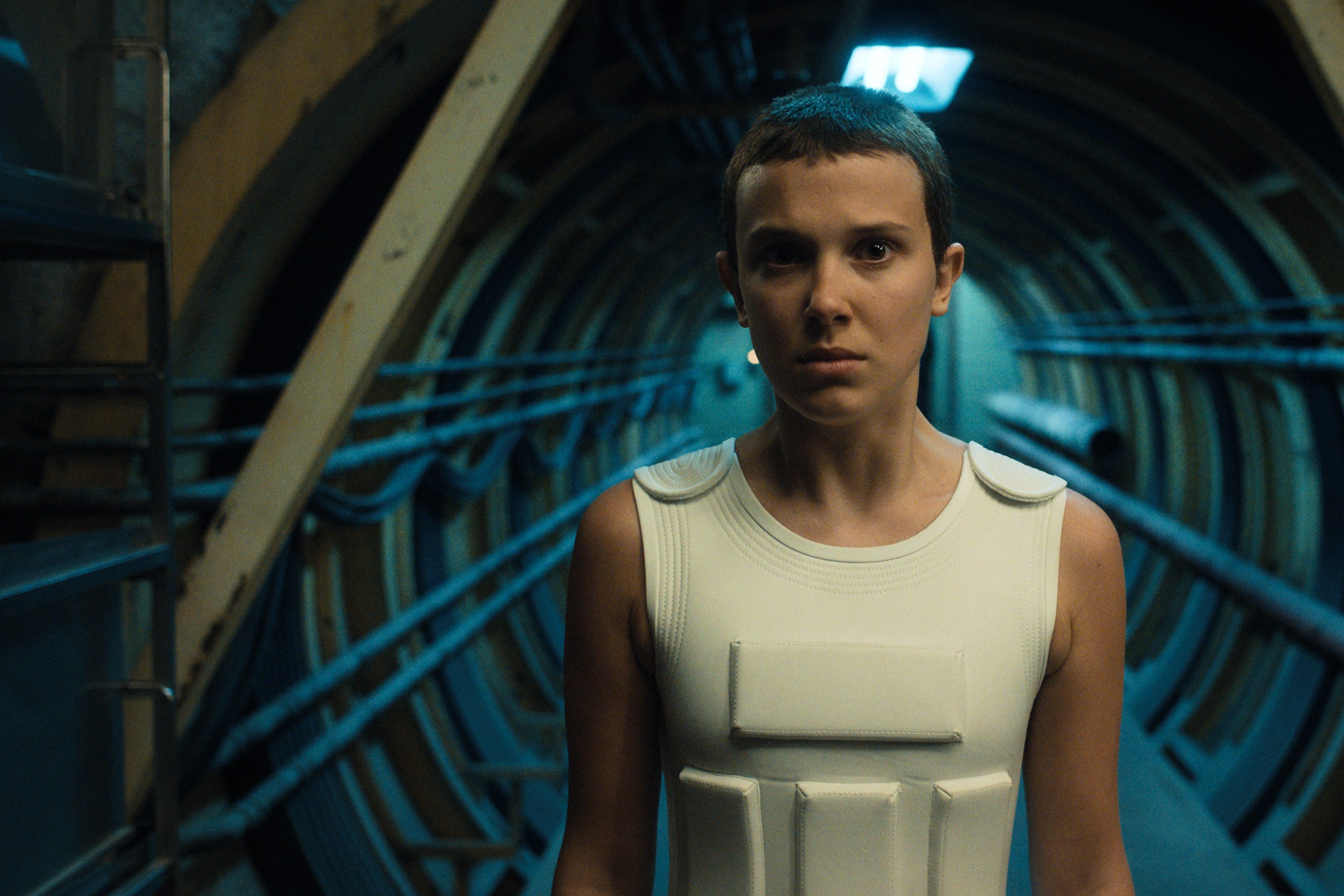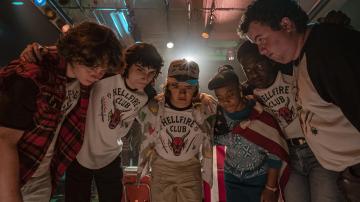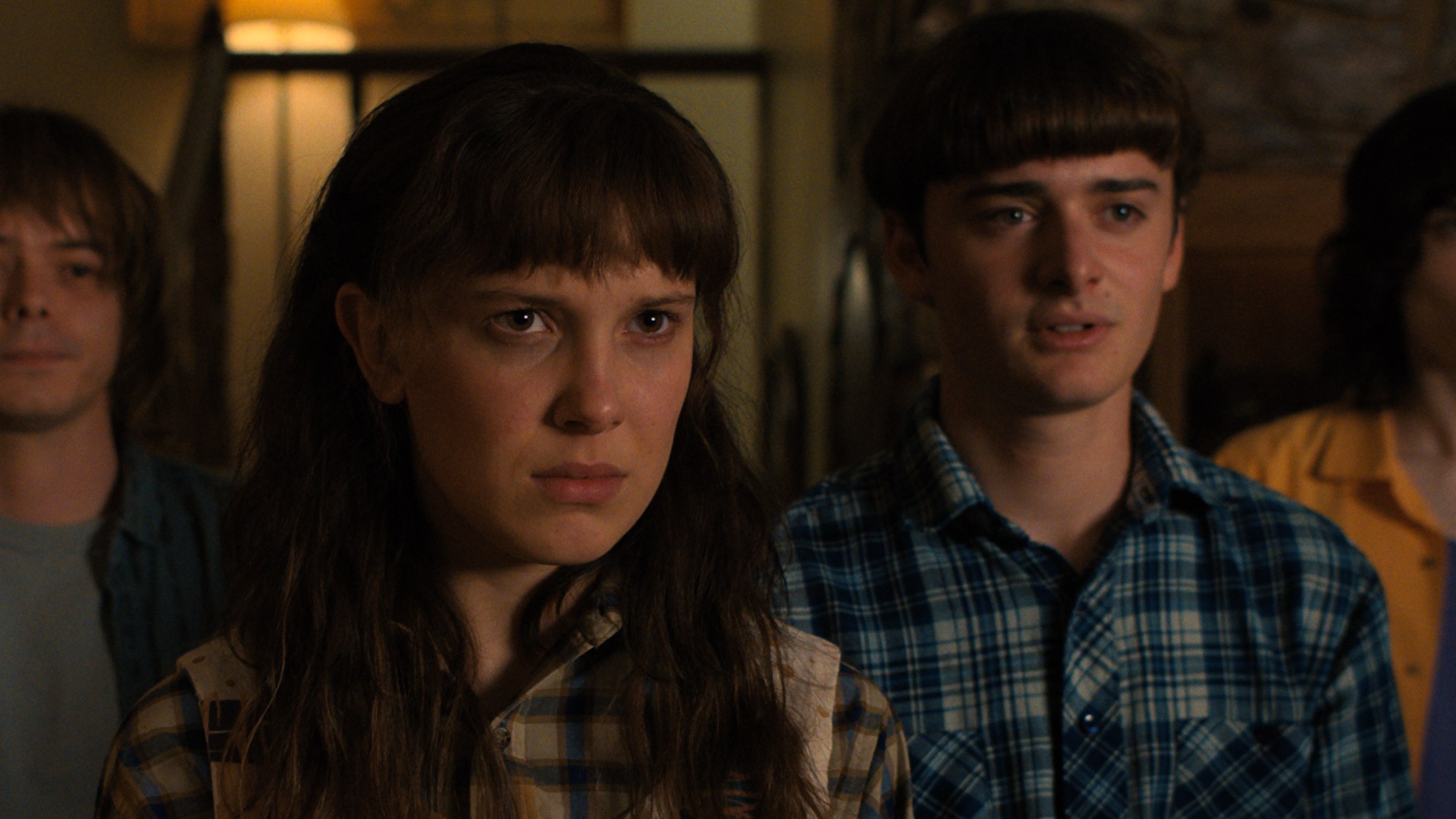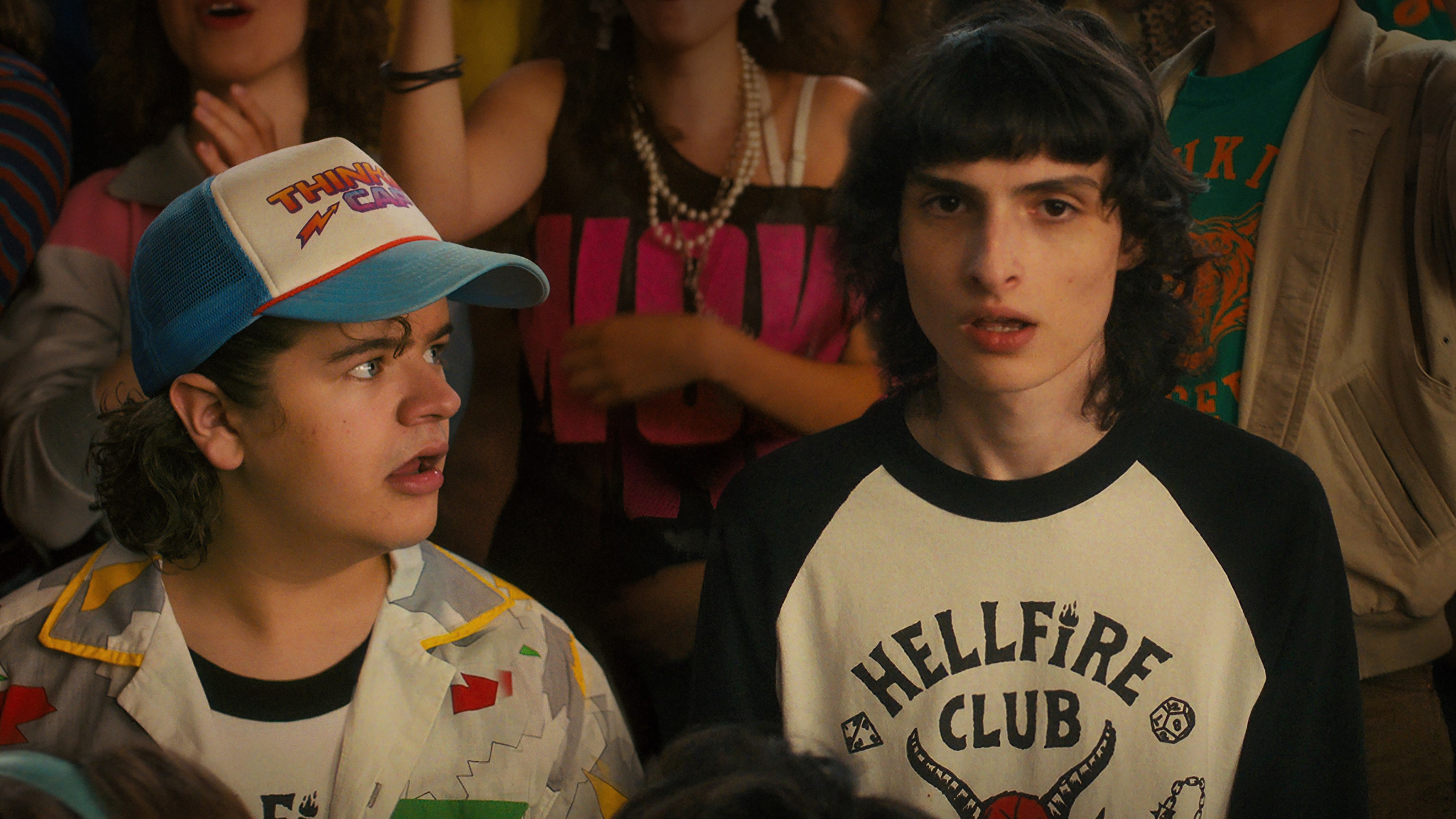★★★☆☆
Call it the Kate Bush effect, but recently Stranger Things seems to have become more adored than ever. It was already one of the most popular shows in the world, and series four of the 1980s-set sci-fi fantasy felt positively supersized — bigger, longer, scarier, stranger even. The Duffer Brothers took the “more is more” method and it paid off. In this way the show got back on track after its third season, in which the reveal of what was under the Starcourt Mall suggested diminishing returns ahead. Now, after a hiatus, series four is back for volume two, and the approach could be described as “more of the same”, or even “more is not enough”.
There are just two episodes, but the first, Papa, is 85 minutes long. The second, The Piggyback, edges towards a whopping two and a half hours, the battle of our teenage heroes with the horrific entity Vecna stretched out to A Bridge Too Far proportions. And by now it would be fair to anticipate that we would be able to rely on Eleven (Millie Bobby Brown) to show up at the climax and pummel the villain into oblivion with a psychokinetic scream. But can we this time?
Happy outcomes do not feel guaranteed for anyone — especially when we have one much-loved character spelling this out ominously to another by stating: “Not everything has a happy ending.” This is crucial in terms of keeping the stakes high during episodes that are so protracted they border on being a slog. You do sometimes wonder if Netflix needs more robust editors for their shows.

No big spoilers here, but a few plot points for those not up to date. Things pick up right where they left off. The explanation of what, or rather who, Vecna is (Maya Hawke’s Robin helpfully reminds us that “he’s like Eleven, but a sick, evil, male, child-murdering version of her with really bad skin”) has renewed Eleven’s vigour to escape the sinister white lab run by her “papa”, Dr Martin Brenner (Matthew Modine).
She is desperate to help her friends, who remain dispersed — there are the ones in California still racing around in Argyle’s Surfer Boy Pizza van like a heavily stoned Scooby-Doo gang; there are those in Hawkins, preparing to go back through the “gate” to see off their ghoulish nemesis, now less an allegory of the emotional trauma of Max (Sadie Sink), more a very physical monster to be slain. Just mind the army of killer bats, kids.
Advertisement
Then there are the parental heroes (David Harbour’s Chief Hopper and Winona Ryder’s Joyce) running around a Soviet gulag pursued by prison guards and Demodogs, those hideous monsters with the heads that explode open like squelched passion fruits.
There is a lot of chasing about, although there is room for the odd humorous scene. The friendship between heavy-metal dude Eddie Munson (Joseph Quinn) and his fellow Dungeons & Dragons nerd Dustin Henderson (Gaten Matarazzo) is as heartfelt as it is often funny. And the music is as judiciously chosen as usual, although the prominent use of Metallica’s Master of Puppets is unlikely to set the news agenda in the way Kate Bush’s Running Up that Hill has done since being propelled back up the charts by its use in the show.
In fact, the show’s return is much less about harmless Goonies fun and spot the 1980s references. The end of the world — or Hawkins, Indiana, at least — is clearly far too momentous for such trivialities, and the emotions here are amped up to the max. As such, while the series is a wonderful, immersive thing, one can assume that these feature film-length episodes will seem interminable to anyone who isn’t a fan. Those who are fans, however, may well be in pieces by its emotive end.
There is, by the way, the matter of a final series to come. After these (under)world-shattering episodes you wonder how climactic it can possibly get.
Stranger Things is out now on Netflix







